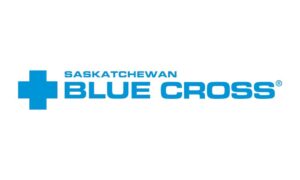Trowbridge second phase strata reforms 'premature'

The National Insurance Brokers Association (NIBA) has suggested focusing on existing disclosure and self-regulatory reforms underway before committing to further strata sector remuneration changes proposed in a report produced by consultant John Trowbridge.
The first phase of the Independent Review of Strata Insurance Practices, commissioned by Steadfast, focused on disclosure while the second has recommended phasing out some convoluted broker and strata manager commission and fee arrangements, that are unclear to lot owners, to address conflicts of interest.
NIBA CEO Phil Kewin says the new broking code of practice addresses issues such as terms of engagement, conflicts, remuneration and disclosure.
“This is recognised, and effectively covered off again in phase 1 of the report from Mr Trowbridge,” he said. “Similar disclosure measures are also supported in the proposals paper on conflicted remuneration from the Quality of Advice Review.”
Mr Kewin says the full effect of those reforms will likely start to make an impact next year.
“NIBA will need to assess the recommendations and ramifications of phase 2 of the [Trowbridge] report in full detail,” he told insuranceNEWS.com.au.
“Recognising that brokers are already implementing self-regulatory change, and will likely further change emanating from the Quality of Advice Review, any further change, which appears to be recommended in phase 2 of the report, would seem premature.”
Strata Community Association (SCA), which in 2020 formed the SCA National Strata Insurance Taskforce, says it doesn’t support the Phase 2 recommendations, noting existing protections, the industry’s code of practice, the duty to act in the best interest of owners committees, and the range of models that exist in the market.
“SCA has committed to further improving transparency and disclosure practices to ensure consumers are educated and understand the strata insurance products they are taking out and each party’s role in the strata insurance supply chain and will review the impact of these changes in 2024,” a spokesman said.
Underwriting agency CHU says over its 45 years in the sector strata schemes have evolved from simple duplexes to complicated multi-billion dollar developments, and insurance requirements are complex.
“More than a product, strata insurance is an entire ecosystem with many parties contributing to the whole,” CEO Kimberley Jonsson said.
“It is often underestimated, how complex a claim can be within a strata title building when there can be tens or even hundreds of insureds and tenants all affected by a single event, all requiring communication during the lifecycle of a claim.”
Ms Jonsson says professional advice is needed from insurance and body corporate perspectives and both brokers and strata managers are integral to the management of policies and claims.
“CHU is fully supportive of transparency in disclosure practices to empower bodies corporate to make informed decisions about their insurance policy. This includes a more robust disclosure process for intermediary remuneration,” she said.
“However, encouraging disintermediation of this product through financial disincentives is likely to have negative outcomes for consumers over time.”





